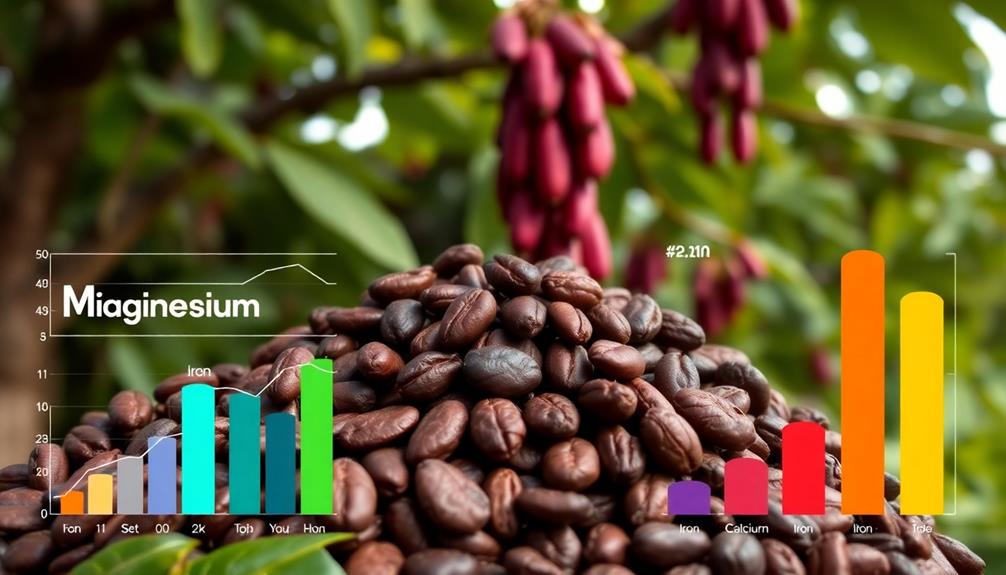Hey! Are you tired of feeling tired and lacking energy? I have a solution for you! Let’s explore the benefits and drawbacks of raw food diets.
Now, you might be wondering, what exactly is a raw food diet? Well, it’s a dietary approach that focuses on consuming unprocessed, uncooked, and mostly plant-based foods.
So, what are the benefits? First off, a raw food diet can provide you with increased nutrient intake. By eating raw fruits, vegetables, nuts, and seeds, you’ll be getting a hefty dose of vitamins, minerals, and antioxidants. Plus, many people find that they naturally lose weight on this diet, thanks to the high fiber content and reduced calorie intake.
But, like all things in life, there are downsides too. One concern is the potential for nutrient deficiencies, as certain nutrients like vitamin B12 and iron are more easily absorbed through cooked foods. Additionally, limited food options and difficulty meeting caloric needs can pose challenges, both socially and in terms of long-term sustainability.
So, if you’re considering a raw food diet, it’s important to weigh the pros and cons to make an informed decision. Let’s dive deeper into the details, shall we?
Key Takeaways
-
Pros of a raw food diet:
- Increased nutrient intake and improved digestion due to the consumption of unprocessed, uncooked, plant-based foods.
- Retention of natural enzymes in raw foods promotes better digestion and gut health.
- Potential for weight loss due to detoxification, reduced caloric intake, impact on gut microbiome, and increased satiety.
- Advantages over a standard Western diet for digestion and nutrient absorption.
-
Cons of a raw food diet:
- Potential nutrient deficiencies, such as vitamin B12, vitamin D, potassium, calcium, and iron, which may require careful planning and supplementation.
- Risk of foodborne illnesses and cross-contamination since raw foods are not cooked, increasing the need for proper washing, storing, and handling techniques.
- Limited food options can lead to nutritional imbalances, especially in terms of protein, iron, and vitamin B12, which are commonly found in grains, legumes, and animal products.
- Social challenges and limited dining out options may arise, leading to potential social isolation and lack of understanding from others.
Increased Nutrient Intake
One of the biggest advantages of a raw food diet is that it allows you to consume a higher amount of essential nutrients, giving your body the fuel it needs to thrive. When you eat raw fruits, vegetables, nuts, and seeds, you are providing your body with a wide range of vitamins, minerals, and antioxidants that are often lost during cooking. Raw foods also retain their natural enzymes, which can aid in digestion and improve gut health.
By consuming a raw food diet, you increase your nutrient absorption because the vitamins and minerals in raw foods are more easily absorbed by the body compared to cooked foods. For example, raw spinach contains higher levels of vitamin C and iron compared to cooked spinach. The increased nutrient intake can lead to improved energy levels, enhanced immune function, and overall better health.
Furthermore, the enzymes in raw foods can help break down food more efficiently, leading to better digestion and gut health. This can reduce bloating, constipation, and other digestive issues. Raw foods also tend to be high in fiber, which promotes healthy bowel movements and supports a healthy weight.
Transitioning to the next section, the raw food diet also has potential benefits for weight loss.
Weight Loss Potential
Losing weight on this eating plan is like embarking on a thrilling adventure with your body, as it sheds excess pounds and inches. The raw food diet has gained popularity for its potential weight loss benefits. Here are some reasons why it may be effective for shedding those extra pounds:
-
Increased Detoxification Benefits: Raw foods are rich in fiber, antioxidants, and water, which can help flush out toxins from the body. This detoxification process can support weight loss by improving the body’s ability to metabolize fat and eliminate waste.
-
Reduced Caloric Intake: Many raw foods, such as fruits, vegetables, and nuts, are naturally low in calories. By consuming these nutrient-dense foods, you can feel satisfied while consuming fewer calories, leading to weight loss.
-
Impact on Gut Microbiome: The raw food diet promotes the consumption of whole, unprocessed foods, which are beneficial for gut health. A healthy gut microbiome has been linked to weight management, as it can enhance metabolism and reduce inflammation.
-
Increased Satiety: Raw foods are often high in fiber and water content, which can help you feel fuller for longer. This can prevent overeating and contribute to weight loss.
Transitioning into the subsequent section about improved digestion, the raw food diet not only aids in weight loss but also offers benefits for digestion and overall well-being.
Improved Digestion
Experience the incredible benefits of improved digestion on this transformative eating plan as your body becomes more efficient at breaking down and absorbing nutrients, leading to a healthier and more vibrant you. A raw food diet can have a positive impact on gut health and nutrient absorption. By consuming mainly raw fruits, vegetables, nuts, and seeds, you provide your body with a rich source of dietary fiber. This fiber acts as a prebiotic, promoting the growth of beneficial bacteria in your gut. These bacteria play a crucial role in digestion, helping to break down food and absorb nutrients more effectively. Furthermore, raw foods are naturally high in enzymes, which aid in the digestion process. Enzymes help to break down complex molecules into smaller, more easily digestible forms. This allows for better absorption of essential vitamins, minerals, and other nutrients.
To illustrate the benefits of a raw food diet on digestion, consider the following table:
| Raw Food Diet | Standard Western Diet |
|---|---|
| High in fiber | Low in fiber |
| Rich in enzymes | Low in enzymes |
| Promotes healthy gut bacteria | May disrupt gut flora |
| Enhances nutrient absorption | May hinder nutrient absorption |
As you can see, a raw food diet provides several advantages for improving digestion and nutrient absorption compared to a standard Western diet. By adopting this eating plan, you can expect to experience enhanced energy levels, as discussed in the next section.
Enhanced Energy Levels
Feeling more energized and revitalized than ever before, I’ve experienced firsthand the enhanced energy levels that come with a raw food diet. This transformative eating plan has allowed me to conquer each day with a bounce in my step. The increased productivity and better athletic performance I’ve noticed are clear indicators of the positive impact this diet can have on energy levels.
One of the main benefits of a raw food diet is its ability to provide the body with a high amount of nutrients in their natural state. Raw fruits, vegetables, and nuts contain essential vitamins, minerals, and antioxidants that can boost energy levels and support overall health. Additionally, the absence of processed foods and additives in a raw food diet helps eliminate energy-draining toxins from the body, further enhancing vitality.
Many athletes have reported improved performance on a raw food diet. The high nutrient content and easy digestion of raw foods can provide the necessary fuel for intense workouts and physical activities. Moreover, the abundance of enzymes in raw foods supports efficient digestion, allowing for quicker nutrient absorption and sustained energy throughout the day.
While a raw food diet can offer numerous benefits, it’s important to be mindful of potential nutrient deficiencies that may arise. Transitioning to this eating plan should be done gradually and with guidance to ensure all essential nutrients are adequately obtained. By making informed choices and maintaining a balanced approach, you can harness the energy-boosting benefits of a raw food diet while avoiding potential nutrient deficiencies.
With increased energy levels and improved overall well-being, it’s important to be aware of the potential nutrient deficiencies that could arise on this transformative eating plan.
Potential Nutrient Deficiencies
Transitioning to a raw food eating plan requires careful consideration of potential nutrient deficiencies to ensure optimal health and well-being. While a raw food diet can provide many benefits, such as increased energy levels, it is important to be aware of the possible vitamin deficiencies and mineral imbalances that may occur.
One potential concern with a raw food diet is the risk of vitamin deficiencies. Certain vitamins, such as vitamin B12, are primarily found in animal products and may be lacking in a raw food diet that excludes these foods. Vitamin D, which is important for bone health and immune function, is also mostly obtained through sunlight exposure and fortified foods, both of which may be limited in a raw food diet.
Additionally, mineral imbalances may occur on a raw food diet. For example, excessive consumption of certain fruits or vegetables may lead to an imbalance in potassium or calcium levels. It is important to ensure a varied and balanced intake of fruits, vegetables, nuts, and seeds to prevent these imbalances.
Incorporating a 3 column and 5 row table in markdown format to highlight the potential nutrient deficiencies and imbalances on a raw food diet:
| Nutrient Deficiencies | Potential Risks |
|---|---|
| Vitamin B12 | Anemia, nerve damage |
| Vitamin D | Weakened immune system, poor bone health |
| Potassium | Muscle weakness, irregular heartbeat |
| Calcium | Weak bones, increased risk of fractures |
| Iron | Fatigue, decreased immune function |
Transitioning into the subsequent section about ‘food safety concerns,’ it is important to address these potential nutrient deficiencies to ensure a well-rounded and balanced raw food diet.
Food Safety Concerns
While potential nutrient deficiencies are a concern with a raw food diet, it’s also important to consider the food safety concerns associated with this eating approach. Raw food diets rely heavily on consuming uncooked foods, which can increase the risk of foodborne illnesses and cross-contamination.
To highlight the potential dangers of a raw food diet, here are some key points to consider:
-
Foodborne illnesses: Consuming raw or undercooked foods increases the risk of infections caused by bacteria, such as Salmonella and E. coli.
-
Cross-contamination risks: Preparing raw foods alongside cooked or ready-to-eat foods can lead to cross-contamination, allowing harmful bacteria to spread.
-
Lack of heat treatment: Raw food diets avoid cooking, which is a critical step in killing bacteria and parasites that may be present in foods.
-
Difficulty in handling raw foods: Properly washing, storing, and handling raw foods can be challenging, increasing the risk of contamination.
-
Susceptibility of vulnerable populations: Infants, pregnant women, the elderly, and those with weakened immune systems are more susceptible to foodborne illnesses from raw foods.
Considering these food safety concerns, it’s important to weigh the benefits and drawbacks of a raw food diet carefully. Transitioning to the subsequent section about "limited food options," it’s essential to be aware of the potential challenges that arise from this dietary choice.
Limited Food Options
The limited variety of available ingredients on a raw food eating plan may restrict individuals to primarily consuming fruits, vegetables, nuts, and seeds. While these foods are undoubtedly nutritious, the lack of diversity in the diet can lead to a potential nutritional imbalance.
Raw food diets often exclude whole food groups like grains, legumes, and animal products, which can provide essential nutrients such as protein, iron, and vitamin B12. Without careful planning and supplementation, individuals on a raw food diet may be at risk of deficiencies in these nutrients.
Furthermore, the limited food options can make it challenging to meet all of the body’s caloric needs. Fruits and vegetables, while rich in vitamins and minerals, are often lower in calories compared to cooked foods. This can be particularly problematic for individuals with higher energy requirements, such as athletes or those with physically demanding jobs. They may find it difficult to consume enough calories solely from raw foods, leading to potential weight loss or inadequate energy levels.
Transitioning into the subsequent section about the ‘difficulty meeting caloric needs’, it is important to address the potential consequences of not obtaining sufficient energy from a raw food diet.
Difficulty Meeting Caloric Needs
Transitioning from the limited food options on a raw food diet, another challenge that individuals may face is difficulty meeting their caloric needs. Since raw foods are generally less calorie-dense than cooked foods, it can be harder to consume a sufficient number of calories to sustain energy levels and maintain a healthy weight. This is especially true for individuals with higher energy requirements, such as athletes or those with physically demanding jobs.
Moreover, meeting protein needs can also be a challenge on a raw food diet. Protein is essential for building and repairing tissues, and without adequate protein intake, individuals may experience muscle loss, weakened immune function, and other health issues. While some raw foods like nuts, seeds, and legumes provide protein, they may not be enough to meet the recommended daily intake.
To highlight the importance of meeting caloric and protein needs, consider the following table:
| Nutrient | Recommended Daily Intake | Raw Food Sources |
|---|---|---|
| Calories | Varies based on age, sex, and activity level | Fruits, vegetables, nuts, seeds |
| Protein | 0.8 grams per kilogram of body weight | Nuts, seeds, legumes |
Failing to meet these nutritional needs may lead to potential health risks, such as nutrient deficiencies, muscle wasting, and compromised immune function. Transitioning into the subsequent section about social challenges, it is important to consider how the limitations of a raw food diet can affect social interactions and dining out experiences.
Social Challenges
One theory to investigate is how the limitations of a raw food lifestyle can impact social interactions and dining experiences.
-
Social isolation: Following a raw food diet may lead to feelings of social isolation, as it can be challenging to find others who share the same dietary preferences. This can make it difficult to connect with friends and family during meal times, leading to feelings of exclusion and loneliness.
-
Dining out: Eating at restaurants can be a challenge for those following a raw food diet. Many establishments don’t offer a wide range of raw food options, making it difficult to find suitable meals. This can result in limited choices and feeling left out when dining with others.
-
Lack of understanding: People may not fully understand or appreciate the reasons behind choosing a raw food diet. This can lead to judgment, criticism, or pressure to conform to societal norms. It can be frustrating to explain and defend one’s dietary choices, further exacerbating the social challenges.
Transitioning to the next section about the ‘long-term sustainability’, it’s important to consider the potential impact of these social challenges on the overall viability and longevity of a raw food lifestyle.
Long-term Sustainability
Imagine yourself years down the road, trying to maintain a lifestyle that may present challenges when it comes to sustaining your chosen way of eating. One aspect to consider is the long-term sustainability of a raw food diet. While this diet can have its advantages, it also comes with some drawbacks in terms of environmental impact and ethical considerations.
When it comes to the environment, a raw food diet can be beneficial. It typically involves consuming whole, unprocessed foods, which often have a lower carbon footprint compared to processed foods. This is because raw foods require less energy and resources to produce and transport.
Additionally, a raw food diet often includes a high proportion of fruits and vegetables, which are generally more sustainable to grow compared to animal products.
However, there are also ethical considerations to take into account. Some proponents of raw food diets argue that consuming raw foods aligns with the principles of ethical eating, as it avoids the harm and suffering associated with animal agriculture. On the other hand, others argue that a fully raw diet may not provide all the necessary nutrients for long-term health, which raises concerns about the well-being of individuals following this diet.
The long-term sustainability of a raw food diet can be influenced by both environmental impact and ethical considerations. While it may have certain benefits in terms of reducing carbon footprint and promoting ethical eating, it is important to carefully consider the potential nutritional deficiencies and individual health needs before committing to this way of eating.
Frequently Asked Questions
Can a raw food diet help improve skin health and appearance?
A raw food diet can have positive effects on skin health and appearance. By consuming a diet rich in fruits, vegetables, and nuts, we provide our bodies with essential nutrients and antioxidants that promote healthy skin. Additionally, raw foods are often lower in calories, which can contribute to weight loss.
However, it’s important to note that a raw food diet may lead to nutrient deficiencies if not properly planned. It’s recommended to consult with a healthcare professional before starting any new diet.
Is it possible to gain muscle on a raw food diet?
Yes, it’s possible to gain muscle on a raw food diet. Raw food diets consist of unprocessed, plant-based foods that are rich in nutrients and easy to digest. These foods provide the necessary vitamins, minerals, and protein needed for muscle growth. However, it may be more challenging to consume enough calories and protein to support muscle building on a raw food diet, so careful meal planning and supplementation may be necessary.
What are the potential effects of a raw food diet on mental health and cognitive function?
Exploring the potential effects of a raw food diet on mental health and cognitive function, it’s like diving into a deep ocean of possibilities.
Research suggests that this diet may offer potential benefits such as improved mood, increased energy, and enhanced brain function due to the abundance of nutrients and antioxidants.
However, it is important to consider potential risks like nutrient deficiencies and limited food options.
Consulting with a healthcare professional is crucial to ensure a balanced approach to mental and cognitive health.
Are there any specific considerations for pregnant or breastfeeding women following a raw food diet?
Pregnancy and breastfeeding considerations should be taken into account when following a raw food diet. It’s important to ensure that pregnant and breastfeeding women are getting all the necessary nutrients for themselves and their baby. Raw food diets may not provide enough essential nutrients, such as iron, calcium, and vitamin B12, which are crucial during pregnancy and breastfeeding. It’s recommended to consult with a healthcare professional to ensure a balanced diet that meets the nutritional needs of both mother and baby.
Can a raw food diet help manage or prevent chronic diseases such as diabetes or heart disease?
A raw food diet can be beneficial in managing or preventing chronic diseases such as diabetes or heart disease. Research suggests that this diet can lead to weight loss, which is important for managing these conditions. Additionally, consuming raw foods can improve digestive health due to their high fiber content.
However, it’s important to note that a raw food diet may not provide all the necessary nutrients, so it’s essential to plan meals carefully to ensure adequate nutrition.
What Are The Health Benefits and Risks of a Raw Food Diet?
The raw food diet meal eaten regularly can provide increased nutrient intake and aid in weight loss. However, there are risks associated with this diet, including potential nutrient deficiencies and foodborne illnesses from consuming uncooked foods. It’s important to carefully consider the potential health benefits and risks before starting a raw food diet.
Conclusion
In conclusion, a raw food diet can offer some benefits. These include increased nutrient intake, potential weight loss, improved digestion, and enhanced energy levels. However, it also comes with potential nutrient deficiencies, limited food options, difficulty meeting caloric needs, social challenges, and long-term sustainability concerns. So, is the raw food diet worth it? It ultimately depends on individual preferences, goals, and the ability to ensure a well-rounded and balanced intake of essential nutrients.

















